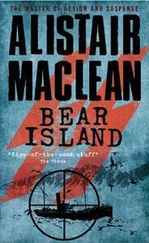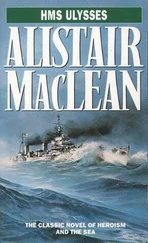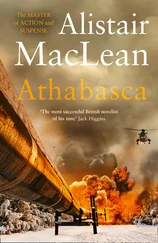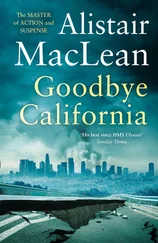Bruno said: “It may have occurred to some of you that I have accomplices among the audience. Well, you can’t all be accomplices because then you wouldn’t bother to come and see me, even if I could afford to pay you all, which I can’t. But this should remove all doubt.” He picked up a paper plane and said:
“I’m going to throw this among you and although I can do lots of things I can’t control the flight of a paper plane. Nobody ever could. Perhaps the person it touches would be good enough to come to the stage.”
He threw the paper plane over the audience. It swooped and darted in the unpredictable fashion of all paper planes, then, again in the fashion of all paper planes, ended its brief flight in an ignominious nose dive, striking the shoulder of a youth in his late teens. Somewhat diffidently he left his seat and mounted the stage. Bruno gave him an encouraging smile and a sheet of paper and envelope similar to those he’d given the women. “What I want you to do is simple. Just write down three figures and put the sheet inside the envelope.” This the youth did, while Bruno stood with his back to him. When the paper was inside the envelope Bruno turned, but did not even look at the paper far less touch it. He said: “Add the three numbers and tell me what the total is.”
“Twenty.”
“The numbers you wrote down were seven, seven and six.” The youth extracted the paper and held it up for the audience to see. Seven, seven and six it was.
Fawcett looked at Pilgrim, who had now adopted a very thoughtful expression indeed. Clearly, if Bruno were not genuine then he was either a consummate magician or an extraordinarily devious character.
Then Bruno announced his most difficult feat of all — that of displaying that he was possessed of a photographic memory, that of identifying, given the location, of any word in a double spread of any magazine, irrespective of language. Masters left nothing to chance or the impetuousness of any eager-beaver who might care to forestall him for he was on stage even before Bruno had finished his explanation. Bruno, slightly lifting amused eyebrows, took the opened magazine from him, glanced at it briefly, handed it back and looked interrogatively at Masters.
Masters said: “Left page, second column, let me see now, seven lines down, middle word.” He looked at Bruno with a half-smile of triumphant expectation.
Bruno said: “Canada.”
The half-smile vanished. Masters’s nondescript features seemed to fall apart then he shrugged his shoulders in genuine disbelief and turned away.
Outside, Fawcett said: “I hardly think that Bruno is likely to have the inside track on the CIA. Convinced?” “Convinced. When does the performance start?”
“Half an hour.”
“Let’s go watch him on the high wire or whatever. If he’s half as good out there — well, he’s our man.” The exhibition hall that housed the three-ring circus was completely full. The air was alive with music, this time more than tolerable music from a very competent orchestra, an air that was charged with tension and excitement and anticipation, with thousands of young children transported into an enchanted fairyland — almost, indeed, to the extent their grandparents were. Everything glittered, but it was no cheap tinsel glitter, but a background that seemed the integral and inevitable part of everything a circus should be. Apart from the dun-coloured sand in the three rings, a dazzling rainbow of colours caught the eye even more than the music the ear. Circling the ring were beautiful and beautifully dressed girls on the most outrageously caparisoned elephants and if there was any colour in the spectrum that the designer had omitted it wasn’t apparent to the eye. In the rings themselves clowns and pierrots vied with each other in the ludicrousness of their antics and the ridiculousness of their costumes, while both of them vied with the tumblers and the stately procession of stilt-walkers. The audience watched it all in fascination — albeit with an element of impatience, for this spectacle, magnificent as it was, was only the warm-up, the prelude to the action to come. There is no atmosphere in the world quite like that in the charged atmosphere of the big top just before the performance begins. Fawcett and Pilgrim sat together in excellent viewing seats, almost opposite the centre of the main ring. Fawcett said:
“Which is Wrinfield?”
Without appearing to do so, Pilgrim indicated a man sitting only two seats away in the same row. Immaculately clad in a dark blue suit, matching tie and white shirt, he had a lean, thoughtful, almost scholarly face, with neatly parted grey hair and pebble glasses.
“That’s Wrinfield?” Pilgrim nodded. “Looks more like a college professor to me.”
“I believe he was once. Economics. But bossing a modern circus is no longer a seat of the pants job. It’s big business and running it requires corresponding intelligence. Tesco Wrinfield is a highly intelligent man.”
“Maybe too intelligent. With a name like that and on a job like this it’s going to be —” “He’s a fifth-generation American.”
The last of the elephants left the arena and then, to the accompaniment of a blare of trumpets and the suddenly amplified effects of the orchestra, a golden chariot, drawn by two magnificently adorned black stallions, erupted into the arena at full gallop, followed by a dozen horsemen. From time to time these horsemen retained some form of contact with their horses, but for the most part performed a series of acrobatic feats as spectacular as clearly suicidal. The crowd yelled and cheered and applauded. The circus had begun.
The performance that followed more than bore out the cir-cus’s claim that it had no peer in the world. It was superbly arranged and superbly presented and, as was to be expected, it numbered among its acts some of the best in the world: Hein rich Neubauer, an all but incomparable trainer with an uncanny power over a dozen very unpleasant Nubian lions; his only equal, Malthius, who treated the same number of even more unpleasant Bengal tigers as if they were kittens; Carraciola, who had no trouble at all in making his chimpanzees look a great deal more intelligent than he was; Kan Dahn, billed as the strongest man in the world, which, on the basis of his extraordinary one-handed feats on the high wire and trapeze while seemingly unencumbered by the presence of several attractive young ladies who clung to him with a touching degree of devotion, he might well have been; Lennie Loran, a high-wire-walking comedian, who would have made any insurance agent in the country jump on his pen; Ron Roebuck, who could perform feats with a lasso that a rodeo cowboy wouldn’t even dare dream about; Manuelo, a knife-thrower who could extinguish a lit cigarette at twenty feet — with his eyes bandaged; the Duryans, a Bulgarian teeterboard team who made people shake their heads in wonder; and a dozen other acts, ranging from aerial balletists to a group who climbed up tall ladders and balanced there entirely unsupported while they threw Indian clubs at each other.
After an hour or so of this Pilgrim said graciously: “Not bad.
Not bad at all. And here, I take it, is our star turn.” The lights dimmed, the orchestra played suitably dramatic if somewhat funereal music, then the lights came on again. High up on the trapeze platform, with half a dozen coloured spotlights trained on them, stood three men clad in sparkling, sequinned leotards. In the middle was Bruno. Without his mandarin’s gown he now looked singularly impressive, broad shouldered and hard and heavy muscled, every inch the phenomenal athlete he was reputed to be. The other two men were fractionally slighter than he. All three were blindfolded. The music died away, and the crowd watched in eerie silence as the three men pulled hoods over their blindfolds. Pilgrim said: “On balance, I think I would prefer to be down here.”
Читать дальше
Конец ознакомительного отрывка
Купить книгу











